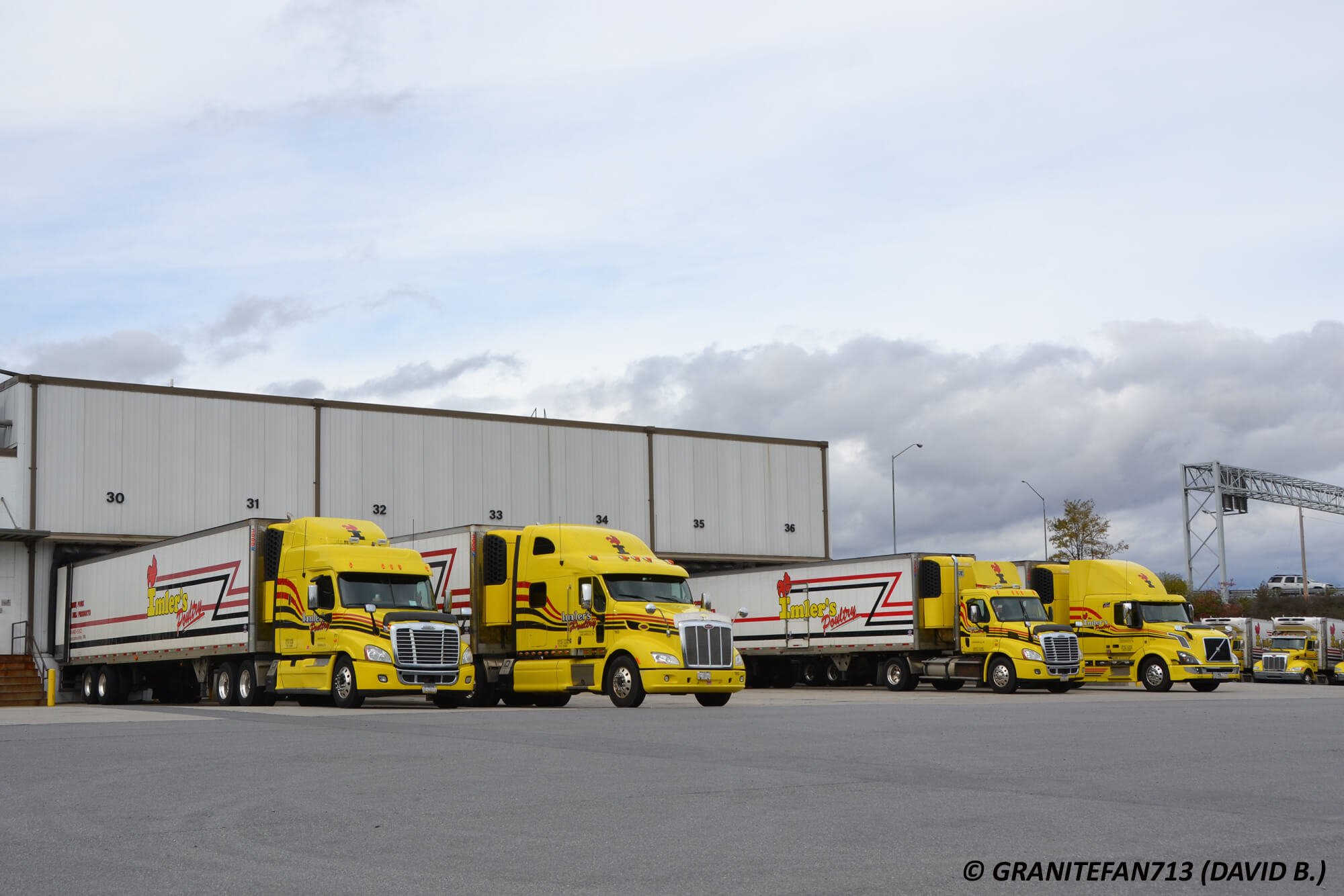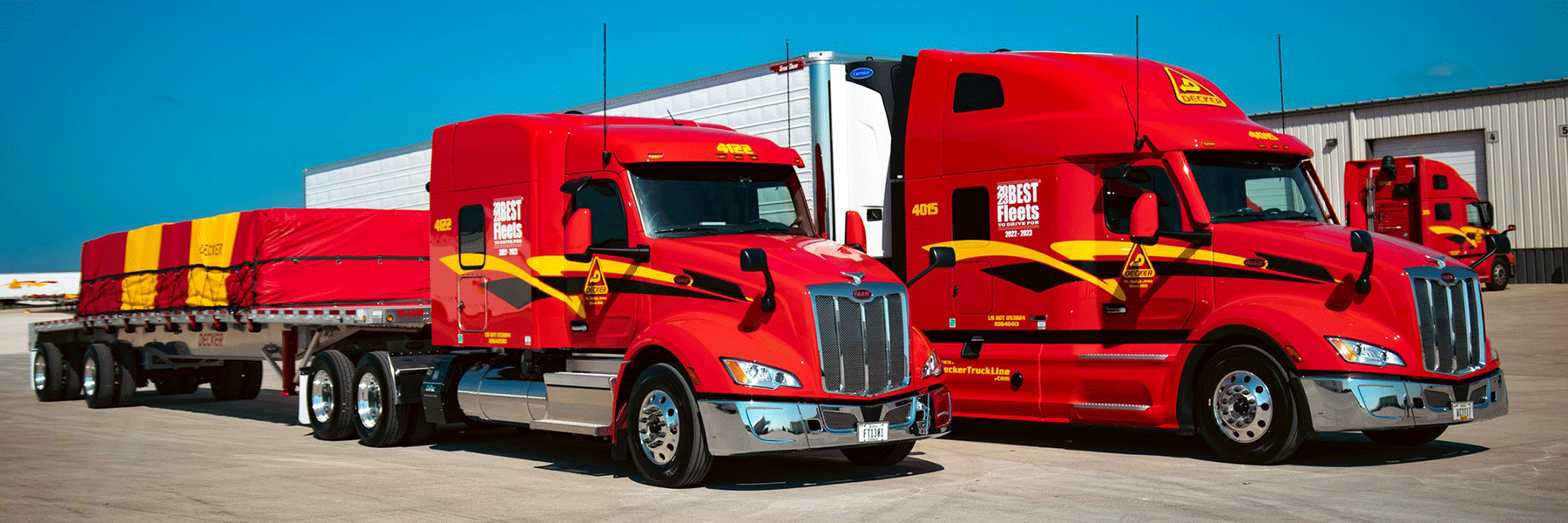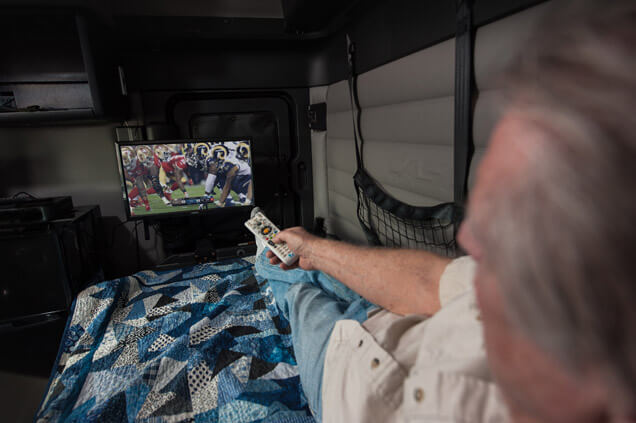The times truly have changed.
With the novel coronavirus upending lives, and the economy, the country can feel almost unrecognizable today from what it was only a few months ago. And, more broadly, transportation equipment has evolved over the last few decades, along with many of the faces, routes and sites seen over the road.
“We service our customers different than anybody else,” said Fred Imler II, co-owner and president of Imler’s. “If we mess up an order, we don’t say, ‘Well, your next delivery day is Monday.’ If we mess the order up today we take care of it today, whether it’s running a special trip or whatever. The only thing we have to offer that nobody else has is service, and that’s because of the dedicated employees we have and our family tradition.
“We’re going to take care of the customer.”
Imler’s origins
Bryan Imler, 45, who oversees all aspects of the business after focusing on sales and purchasing for many years; his father, Fred Imler II; and his grandfather, Fred Imler Sr, run the 117-year-old company together. Fred Imler II recently turned 64, and he said his dad, who recently reached 87—both were born April 30—still loves beating him to work. They’re driven by passion for what they do, and long-standing pride in the company’s history.
The business traces its origins to 1903, when Leff Imler, Fred Sr’s great, great uncle, operated a general store in Rainsburg where he traded with local farmers. Fred Sr’s grandfather purchased the business in 1915, and three years later moved it to downtown Altoona—where they operated for nearly 100 years.
Consulting drivers
Fred II said 30 years ago that discussing specifications with drivers before and after vehicle purchases made Imler’s a better place to work. That hasn’t changed either. After all, no one knows the trucks and trailers better than the people operating them. The size of Imler’s vehicle fleet, however, is vastly different today.
The long-haul fleet now includes 32 sleeper tractors and 41 53-foot trailers, and the company deploys four day-cab tractors, six 42-foot trailers and 15 straight trucks for local distribution. So Imler’s combined fleet has grown from 30 vehicles in 1990 to 98 in 2020, with approximately 70 truck drivers behind the wheels.
All ’66 Corvette-yellow tractors are Volvos, and the majority boast “smooth-shifting” fully automatic transmissions Jim Gonter, Imler’s long-time transportation coordinator, says most drivers really like, although the company does have five 13-speed standard transmissions for the old-school drivers who appreciate the control, and all drivers are required to train on automatics and standards so they’re never stranded.
Fully accessorized
In line with making sure drivers are comfortable on the road, Imler’s also specs its sleepers with refrigerators and easily accessible microwave plugs. The company also pays for SiriusXM satellite radio and EpicVue satellite TV, ensuring drivers never are bored, even while taking the mandated 10 hours off under new hours-of-service rules. The EpicVue package includes a satellite dome mounted on top of the tractor, DirecTV receiver, 24-inch flat screen TV, mounting and cabling equipment, and local area antenna.
“(Fred II) always tells me, ‘Jim, whenever you spec out a truck, spec it like it’s something you want to drive,’” said Gonter, who added that ownership quickly approved the luxury when they discussed it two years ago.
The trucks also feature Verizon Connect electronic logging devices (ELDs), Ex-Guard grille guards, on the tractors and straight trucks, and Lytx DriveCam cameras.
The grille guards have proven invaluable in mitigating costly damages to trucks, Gonter said. “Nowadays, with the cost of repairs, just the headlights on these trucks are $1,000, and with those guards on there, if you hit a deer or even if you’re in a slight accident, there hardly ever is any damage done to the truck,” he maintained.
The front- and cab-facing Lytx cameras help ensure accidents never occur. The cameras always are recording what is in front of the truck, Gonter said, but they save only 12 seconds of video when there is a triggering incident, like an accident or hard brake, with 8 seconds before the incident and 4 seconds afterward. “You can see exactly what the driver’s seeing out the window, plus you can also see the driver, and what he’s doing,” Gonter said.
“We had one incident down in Maryland where a car pulled right out in front of our truck,” Gonter recalled. “It was a pickup, and our truck tried to stop but it caught the back end of the pickup. Well, their insurance company came back and said your truck ran into our driver. I said ‘No, your guy pulled out in front of our truck.’ So we were talking, and I said, ‘Well, I’ll send you the video.’ I sent him the video and a few minutes later the guy called me back and said ‘Don’t worry about it. It was totally our driver’s fault.’”
Booming operation
Imler’s delivery area now includes Pennsylvania, Ohio, New York, New Jersey, West Virginia, Virginia, Maryland and Washington DC, representing a 250-mile radius from Duncansville. The company employees around 180 people, and they stayed busy during quarantine, even as many of Imler’s peer companies—and Fred II’s long-time friends—have struggled, primarily because most of its business is with retail customers, like meat markets and grocery stores, instead of restaurant and foodservice companies.
Employees have continued to come to work. Fred II says their customers’ ability to see how they operate, and put faces to voices on a phone and names in an email, is another key to their success. Protection still is a personal decision (except where mandated by government) but most employees have worn masks and gloves, and drivers are advised to proceed with caution in areas with high concentrations of coronavirus cases.
“Our business has increased and continues to increase,” Fred II said while lamenting those who’ve been less fortunate. “We’re setting record numbers, as far as tonnage being shipped, almost every day. So our business is good.”
Imler’s also is diverse enough to withstand fluctuations in demand. It hauls commodity products for many different types of companies, including food and beverages, furniture wood and even clay sport targets. Imler’s sources most of its poultry from long-time suppliers in the Delmarva peninsula, and also brings in some from South Carolina and Georgia, and most of its beef and pork comes out of the Midwest.
“We still do business the way we did in the 90s, and even before,” Fred II said. “Every customer is still important, whether it’s the guy buying two cases of chicken or the guy buying trailer loads a week. We put a lot of effort into our service … but we can’t do that without the workforce we have. I’d put our employees up against anybody’s in the industry.”



